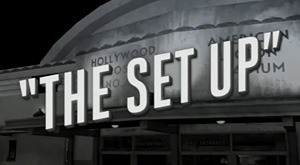Writing Tip #24: The Art & Necessity of Set Up
 When it comes to telling the story of your life or any story for that matter, there is a reader who must be "brought up to speed." We see this in shows that have a sequence to them or are two partners. "Last week, on The Love Boat…" and off you go. A pilot is the "set pp," and this has me think of a program I often watch with my children called Psych. The set up for the characters, the plot and the way the series will go is in that first show but you see there is also an evolution that takes place as the series and the characters evolve. In fact, the initial set up changes in its orientation remarkably as the program evolves and other factors weigh in which include audience opinion. And that will be the case for you.
When it comes to telling the story of your life or any story for that matter, there is a reader who must be "brought up to speed." We see this in shows that have a sequence to them or are two partners. "Last week, on The Love Boat…" and off you go. A pilot is the "set pp," and this has me think of a program I often watch with my children called Psych. The set up for the characters, the plot and the way the series will go is in that first show but you see there is also an evolution that takes place as the series and the characters evolve. In fact, the initial set up changes in its orientation remarkably as the program evolves and other factors weigh in which include audience opinion. And that will be the case for you. From Reflection and Retrospection: A Pedagogic Mystery Story Phillip Lopate, he asks for this bit of information from the writer: what year the story is beginning, how old he or she was at the time, where the episode was taking place geographically, and something of the protagonist's family background, class, religion, and dominant mental state at the time.
Lopate goes on to say: This crucial information is precisely what the fledgling memoirist or personal essayist often leaves out—ostensibly because omitting it will make the story more universal (the opposite is true: omitting it will leave the reader frustrated and disoriented). Probably one reason for the omission is that the fledgling non-fiction writer does not know how to insert such information gracefully, and so takes an active dislike to summaries. True, we have all encountered summaries that can be deadly: the obligatory rehash of facts and ideas, or the cursory condensation of years. The problem is not with summaries per se but with badly written ones. The student memoirist must be challenged to bring the most lively, idiosyncratic style to bear on these summarizing, "telling" passages, so that they will flow with personality, brio and active reflection.
Don't allow your fear of writing badly keep you from jumping in and trying to write the set-up. You must start somewhere. Give it a shot. Your reader will thank you by staying with the story you attempt to tell.
Prompt: Set up this moment in this room and where you are at in your life, your writing. Use the checklist Lopate provides. (20 mins)
Share: Find a pal and have them listen as you read this prompt. As they listen, ask them to close their eyes and see what questions arise. Have them write those questions down for you and know you know what the reader--listener--wants to know more about. Those questions help guide the writer to understand what to include in the revision.
Your Turn: Share your writing and the questions inspired.
Published on April 09, 2012 22:14
No comments have been added yet.



